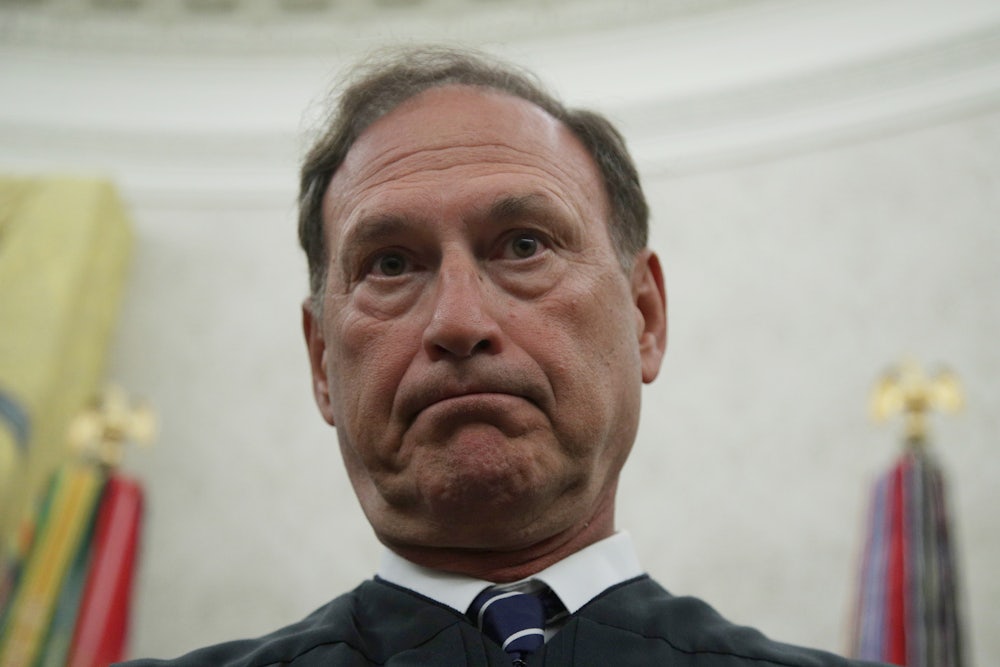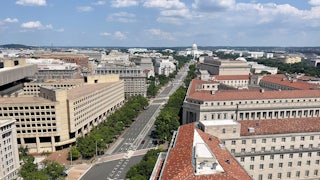In an era of intense competition for Most Shocking Political Development, the gold medalist might well be that the Supreme Court—the highest law-giving body in the United States—is lawless. Clarence Thomas fails to report gifts that were obviously supposed to be reported. Neil Gorsuch sold a Colorado property he co-owned to the CEO of a law firm that would go on to be involved in 22 cases before the high court. Unlike Thomas, he disclosed the sale—but he left the “seller” line blank.
Then came the cherry on the sundae. Senate Judiciary Committee Chairman Dick Durbin wrote to Chief Justice John Roberts asking him to appear before the committee to discuss ethics and the Supreme Court. In a truly obnoxious and supercilious letter, the chief justice of the United States told the senator to stuff it—he would not be appearing. And then, as a closing salvo, Roberts added this massive f-you: “In regard to the Court’s approach to ethics matters, I attach a Statement of Ethics Principles and Practices to which all the current Members of the Supreme Court adhere.” Ri-iight.
Even worse, of course, are the decisions the reactionary bloc has handed down. That list starts with the overturning of Roe. But it includes much more. The Bruen decision makes it harder for state and local governments to craft restrictions on guns. In a case involving the Environmental Protection Agency, the court ruled that new federal regulations are presumptively invalid unless Congress has specifically authorized such regulation. The conservative justices upheld a high school football coach’s right to lead a prayer on the field. They also denied abortion providers’ right to challenge Texas’s draconian Senate Bill 8, the so-called “vigilante law.”
This term, the court is expected to rule on affirmative action, voting rights, LGBTQ rights, and the infamous “independent state legislature” theory, pushed by MAGA extremists, that would give state legislatures effective control over elections.
And there is another danger: the Supreme Court’s increasing use of a secretive process known as the “shadow docket” to make consequential decisions—often with no explanation and in the middle of the night.
At The New Republic, our coverage of the Supreme Court is a source of great pride. Our chief legal writer, Matt Ford, is keenly adept at understanding and describing both the legal and political fallout of court decisions. His cover story on the court last fall was as comprehensive and sharp an account as you’ll read anywhere of the steps by which Roberts lost control of the court. Regular contributor Simon Lazarus, a veteran lawyer in Washington, frequently exposes the fraudulence of the right’s constitutional interpretations and claims. Our cover package last June, “The End of Roe v. Wade,” put the anti-choice justices under the microscope. We’ve also covered, rigorously and consistently, how abortion rights played out in the midterms and the recent mifepristone battle.
But we need to do more. We desperately want to launch a Supreme Court Desk to investigate what the Supreme Court is doing, its behind-the-scenes maneuverings, and the far-reaching effects on American democracy.
This is where you come in. The new Supreme Court Desk will cost just $25,000 to launch, but we need to raise it quickly, as the Supreme Court’s important new decisions are being written as you read this. Twenty-five thousand dollars is a very achievable goal—but only if readers like you do your part.
If you think that Clarence Thomas, Samuel Alito, and Trump-appointed judges Brett Kavanaugh, Neil Gorsuch, and Amy Coney Barrett are a danger to American life, please help us in this important campaign.






